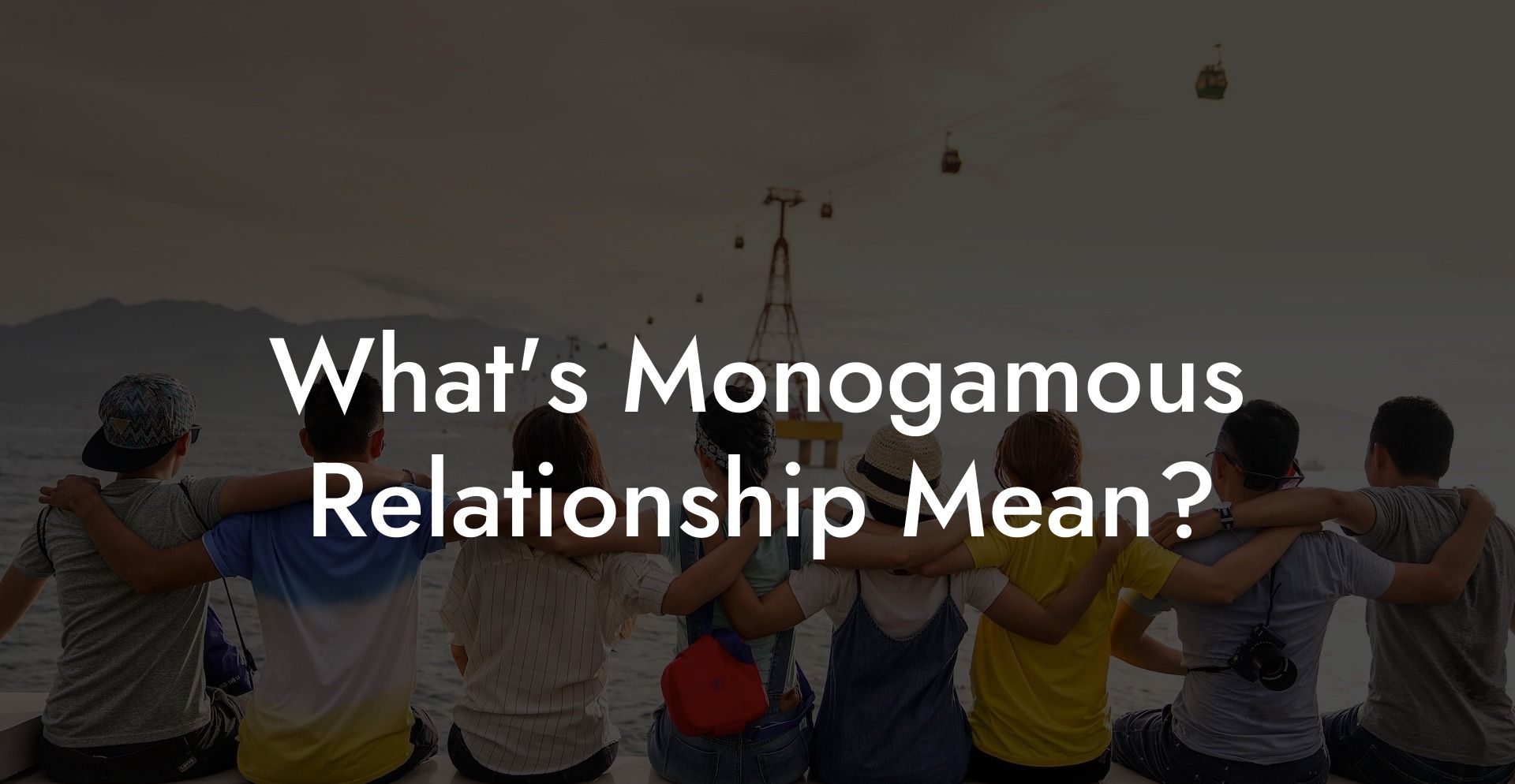In the ever-expanding world of love and relationships, the term "monogamous" often becomes a topic of discussion. Monogamy has been the standard model for romantic relationships in many cultures, but is it still relevant in today's more open-minded society? This article will shed light on monogamous relationships, discussing what they mean, their advantages and disadvantages, as well as some alternative relationship models that are gaining popularity. Are you ready to explore the intricacies of monogamy and discover if it's the right choice for you and your partner? Let's jump right in.
What's Monogamous Relationship Mean Table of Contents
Advantages of Monogamous Relationships
A monogamous relationship is one in which two people agree to be romantically and sexually involved exclusively with each other. This relationship model is rooted in the idea of commitment, loyalty, and lasting emotional connection. Historically, monogamy has been associated with marriage, but this is no longer a strict rule as many unmarried couples also practice monogamy.
Advantages of Monogamous Relationships
Emotional Stability
Monogamy provides consistency and stability in a relationship. Trust and emotional safety are easier to develop in an environment where both partners are transparent about their intentions and exclusivity.
Stronger Emotional Connection
Monogamous relationships tend to foster a deeper emotional connection due to the exclusive nature of the bond. The partners can focus on developing a shared history, personal growth, and an intimate understanding of each other's feelings and needs.
Health Benefits
Practicing monogamy reduces the risk of sexually transmitted infections, as the partners are only engaging with each other.
Disadvantages of Monogamous Relationships
Infidelity
Because monogamous relationships are based on the principle of exclusivity, cheating on a partner can have devastating consequences for the relationship.
Monotony
As time goes on, couples may find that the familiarity and stability once cherished can lead to boredom and a sense of stagnation.
Relationship Pressure
Many couples feel societal pressure to be monogamous, which can lead to the suppression of true desires or feelings of guilt and confusion in a relationship that doesn't hold up to the monogamous ideal.
Example
Consider a young couple, Jane and Tom, who decide to embark on a monogamous relationship. They appreciate the emotional security and consistency they find in their commitment to one another. As their relationship continues to grow and flourish, they face challenges such as boredom and societal pressure but work together to overcome these obstacles. Jane and Tom's bond deepens as they navigate their monogamous journey, and they decide to grow old together, sharing their joys and sorrows exclusively with each other.
So, now that you have a better understanding of monogamous relationships, what do you think? Is this the perfect relationship model for you and your partner, or are you curious to learn more about non-monogamous and polyamorous relationship models? Remember, it's essential to communicate openly with your partner about your desires and boundaries so that you can both find happiness and fulfillment in your romantic relationship. Share this guide with someone you think could benefit from it, and be sure to explore other diverse relationship topics here at The Monogamy Experiment.













